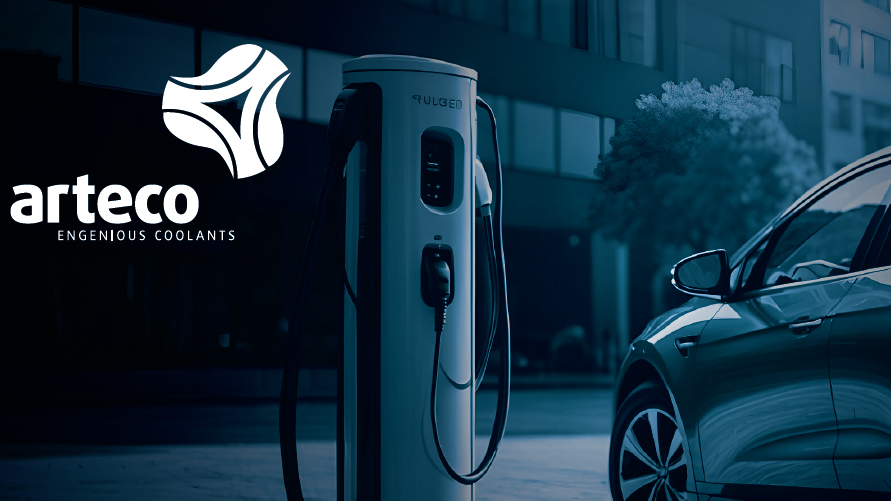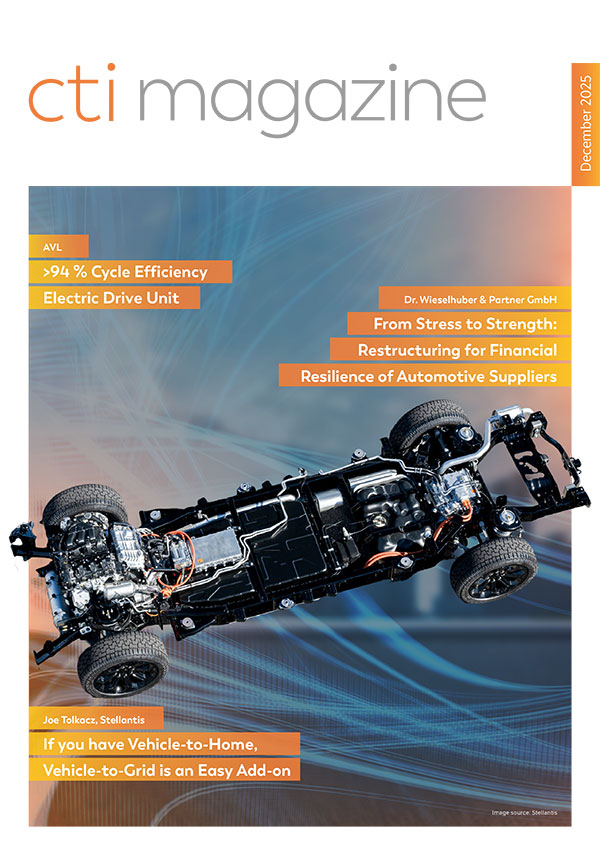
Electrification, including hybrid, battery, and fuel cell electric vehicles (EVs), is driving innovation in powertrain and thermal management systems. Moving away from internal combustion engines is crucial to reducing greenhouse gases, air pollution, and their impact on the climate. With transportation accounting for ~28% of global emissions, reducing its impact is essential to achieving global decarbonisation.
By applying safe and sustainable-by-design (SSbD) principles during R&D, Arteco ensures its solutions are aligned with future environmental and regulatory standards. Water–glycol-based engine coolants are widely used in electric vehicles for indirect liquid cooling. Their excellent heat transfer properties, proven automotive performance, compatibility, and ease of handling make them a commercially preferred solution for thermal management.
For demanding scenarios such as fast charging, the industry is trending towards increased and closer battery-to-coolant integration. To enhance the safety of current and future battery systems, Arteco’s pioneering work led to the development of the Freecor® EV Milli coolant range with low electrical conductivity.
Meanwhile, industry standards have also begun to impose stricter limits on electrical conductivity. For example, ASTM D8566 specifies a maximum electrical conductivity of 100 μS/cm for fresh coolants used in battery electric vehicle applications. Maintaining low electrical conductivity in use, a parameter often overlooked or insufficiently emphasised in existing specifications, is essential to ensure system robustness. Freecor® EV Milli technology resists such electrical conductivity spikes upon contact with brazed aluminium surfaces. Its formulation helps maintain the initial safety benefits by stabilising conductivity levels, ensuring continued electrical insulation throughout the vehicle’s operational life.
While EV-specific coolants are developed to meet safety and performance requirements, Arteco has gone further by addressing their climate impact. Recent life cycle assessment (LCA) studies show that the most significant climate impacts associated with coolants are largely attributable to raw material extraction and end-of-life treatment. In response, Arteco has prioritised resource efficiency in its development strategy, leading to the creation of the Freecor® EV ECO coolant range.
Freecor® EV ECO coolants incorporate base fluids linked to bio-based or recycled feedstocks, allocated via a certified mass balance approach. The benefits of the ECO coolants are reflected in their significantly reduced Product Carbon Footprint (PCF) compared to their traditional virgin fossil-based equivalents.
